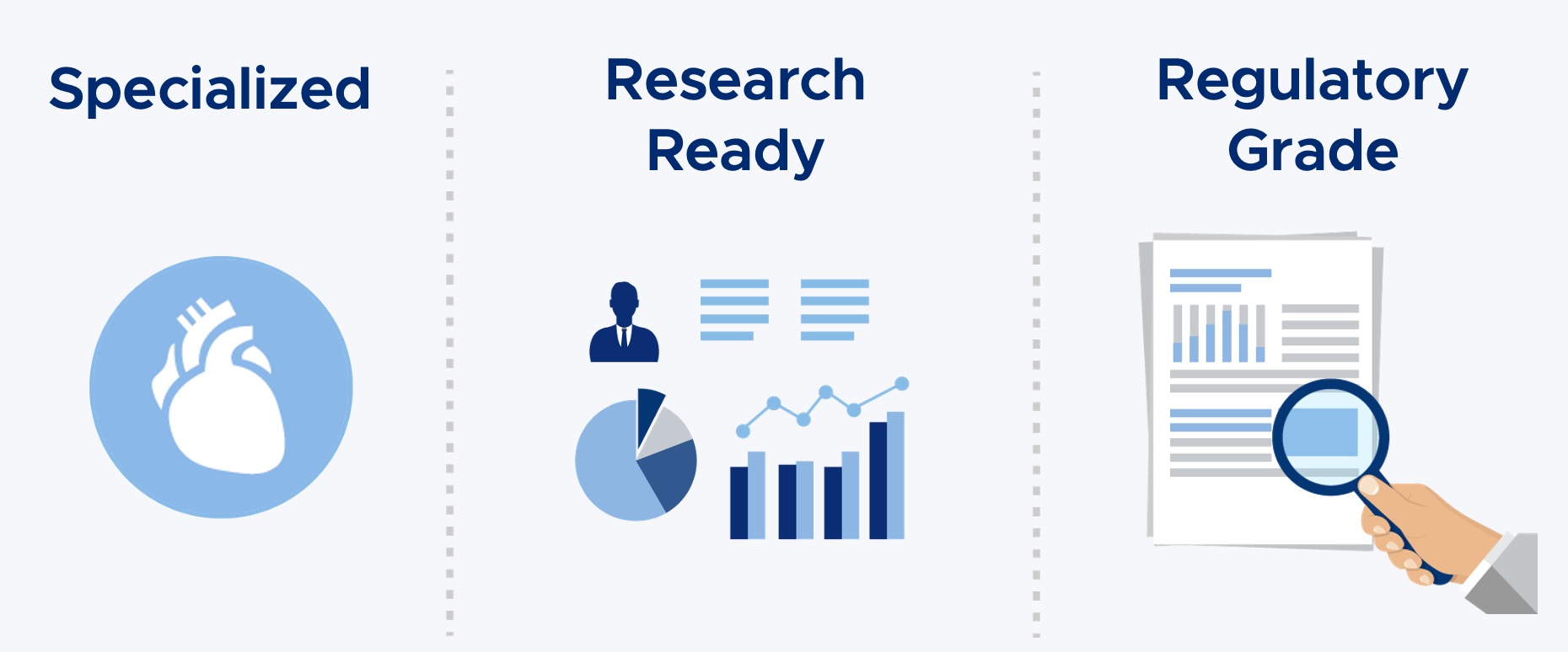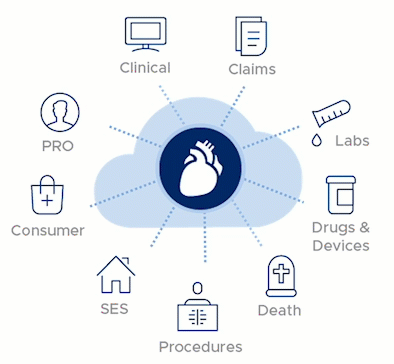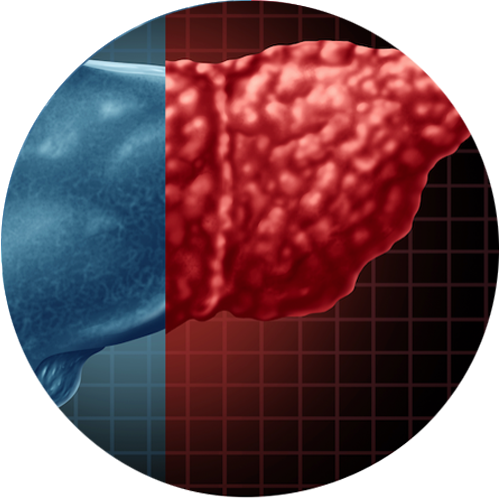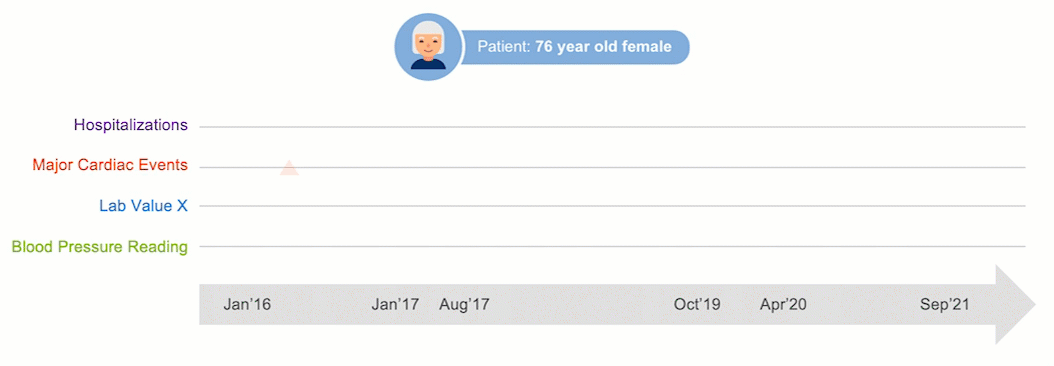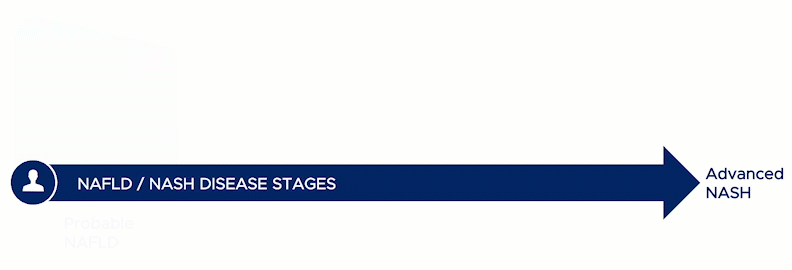Cardiometabolic

Addressing gaps in care and insights
Cardiometabolic conditions affect millions of patients and many of those conditions are associated with high mortality rates. Yet, despite development of new treatments, major advancements in many ways lag behind those for oncology and other chronic medical condition areas. And, high quality research-driven insights to enable market adoption, understand safety and effectiveness profiles, broaden payer coverage, and increase access to care are lacking or have been difficult to attain. Other conditions like MASH* (metabolic dysfunction-associated steatohepatitis), are difficult to diagnose and have few treatment options.
*Formerly known as NASH
From evidence to insights

USE CASE
Addressing an unmet need in HF
Rapidly quantify and characterize patients not eligible for revascularization, with Ischemic Chronic HF and reduced LVEF
LEARN MORE

USE CASE
Comparative effectiveness analysis of the choice of non-vitamin K oral anticoagulant (NOAC) as first line therapy for patients with non-valvular atrial fibrillation (NVAF)
Understanding the real-world comparative effectiveness of NOACs is challenging due to bias arising from clinical practice (confounding by indication, specifically).
LEARN MORE

USE CASE
Identify under-and un-diagnosed MASH* patients with deep clinical data and advanced AI
Identification of both probable and confirmed non-alcoholic fatty liver disease (NAFLD) and MASH* is hampered by asymptomatic disease, under-diagnosis in routine care, lack of condition-specific treatments and poor billing code specificity. *Formerly known as NASH
LEARN MORE
Award-Winning Research Team
Our team of award-winning researchers has authored hundreds of publications, including scientific posters, articles in peer-reviewed journals, white papers, and books.

